GARMENT CARE GUIDE
A considered guide to caring for different fabrics and preserving the quality of your pieces.
Our Care Tips
We create garments to be worn for years, not seasons.
To ensure they can be worn and enjoyed for years to come, each piece should be cared for according to its fabric composition. We understand that caring for different materials can feel overwhelming, so this guide has been created to help you look after your clothing thoughtfully and extend its lifespan.
1.
Carefully wash and Consciously wear
Being mindful of how often you wash and how little you wear can make all the difference to your clothes lifespan. Excessive washing can cause more damage than you think to your garments and the environment. Extend the lifespan of your clothing by considering wearing them more before popping them in the wash. Opt for shaking, hanging and airing them out between wears to improve both quality and longevity. In the case washing is required between uses, opt for a gentle hand wash prior to a harsh machine cycle.
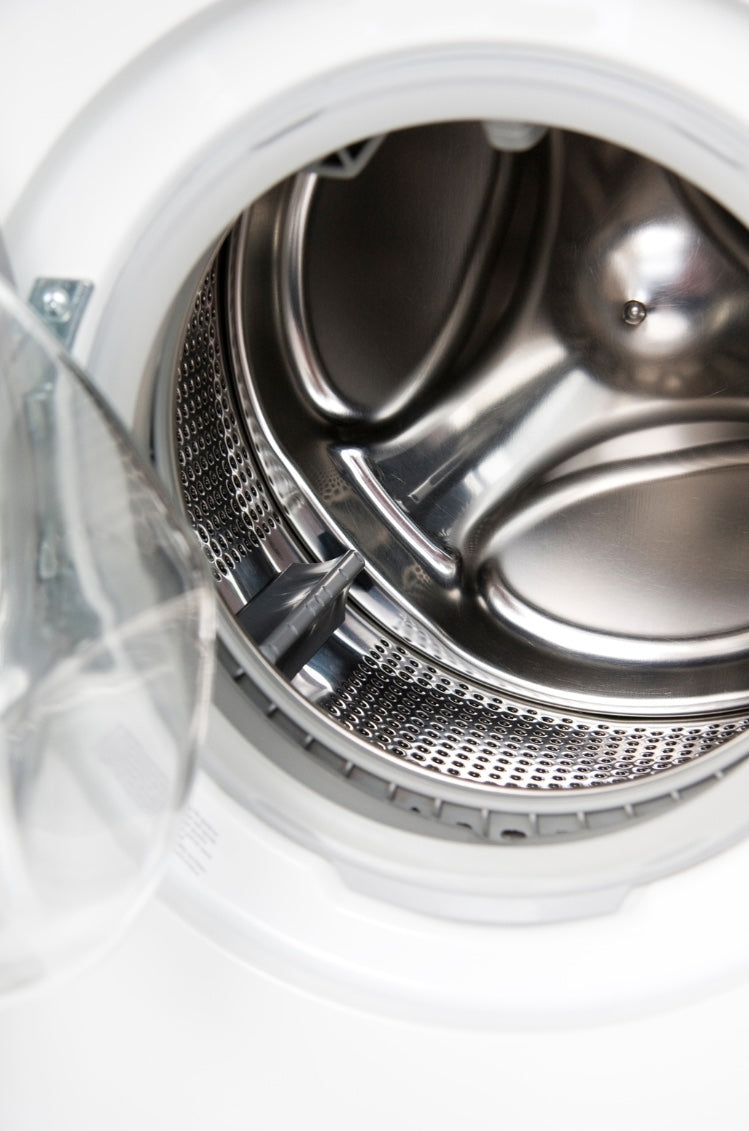
Washing
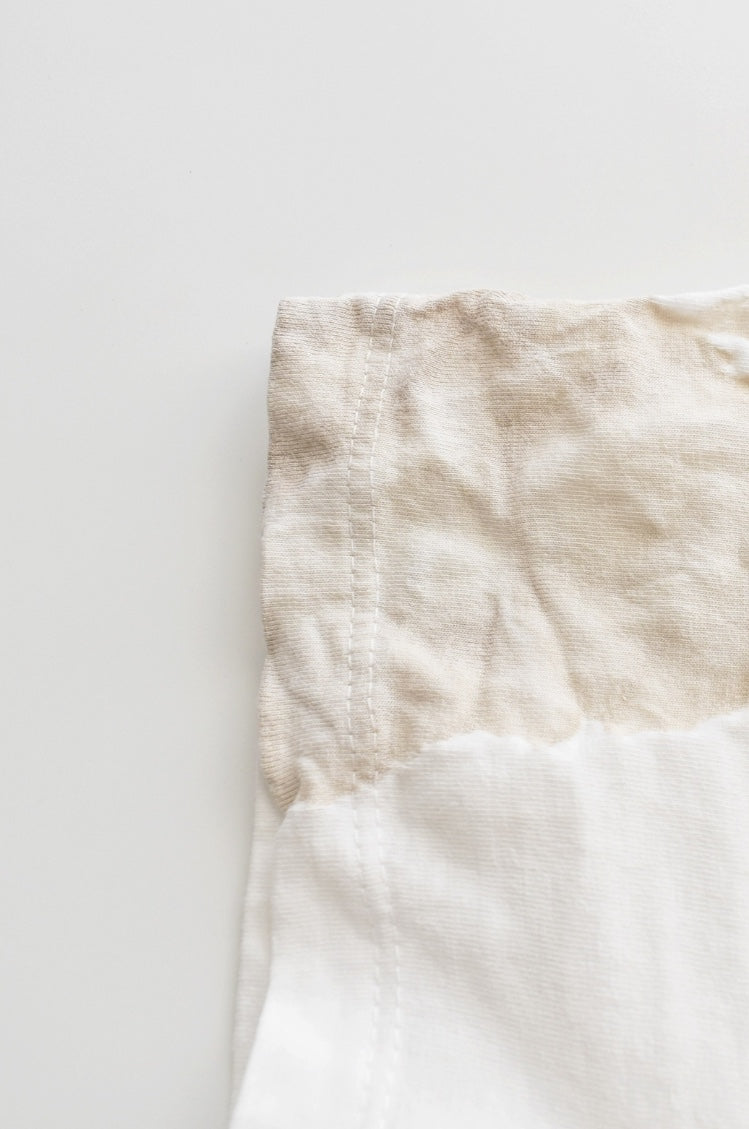
Stains
2.
Tips for stubborn stains
When it comes to stains, always try to tackle these as and when they occur to prevent the contents becoming further settled into the fibres. This especially pertains to natural fabrics such as cotton and linen which, if left untreated for a long period of time can be even more so absorbent and thus harder to remove.
- Try removing stains by hand first, rather than using the washing machine.
- Opt for a cooler water temperature for darker stains such as red wine, chocolate and coffee.
- Utilise common cupboard items like cornflour for grease stains, white vinegar and cold water for grass stains or bicarbonate soda/soda crystals for an array of stubborn stains.
- Some stains may require a little assistance to help remove if water alone is not effective. Try adding some eco-friendly washing detergent.
- Be sure to gently handle fabrics - dabb lightly instead of rubbing or scrubbing.
- Steer clear of harsh chemicals or stain removers as they may cause further damage to fabrics. Be patient and repeat gentler methods. If the stain persists, consider seeking advice from a professional.
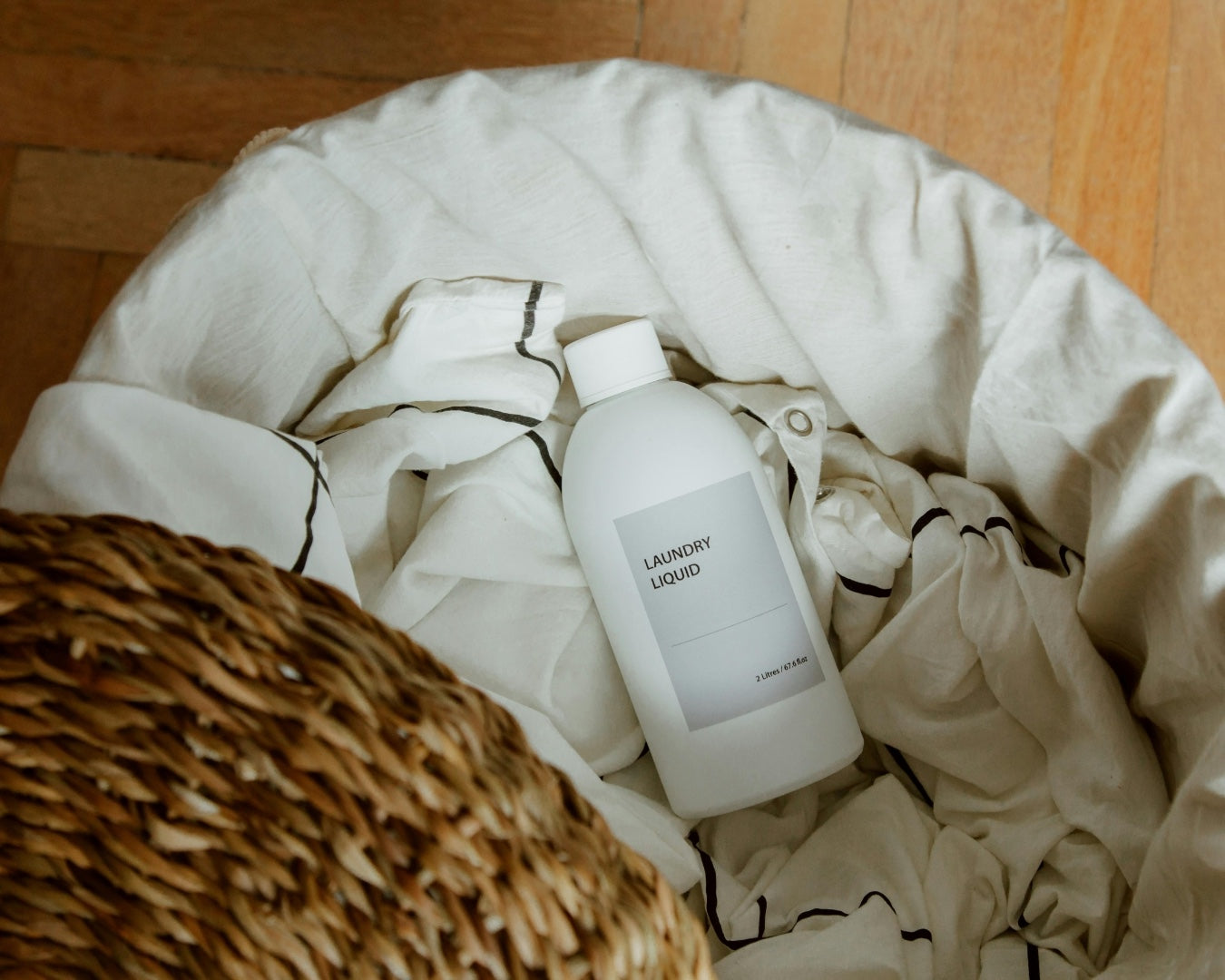
Products
3.
Opt for less-harmful products
Selecting the right products for your garments is essential for their care. Many of the traditional products like stain removers, bleach and fabric softeners are filled with harmful chemicals and toxins, that can damage fabrics and the overall function of its fibres. Choosing eco-friendly washing detergents with less chemicals can achieve equally effective results, without the negative impact on both clothes and environment.
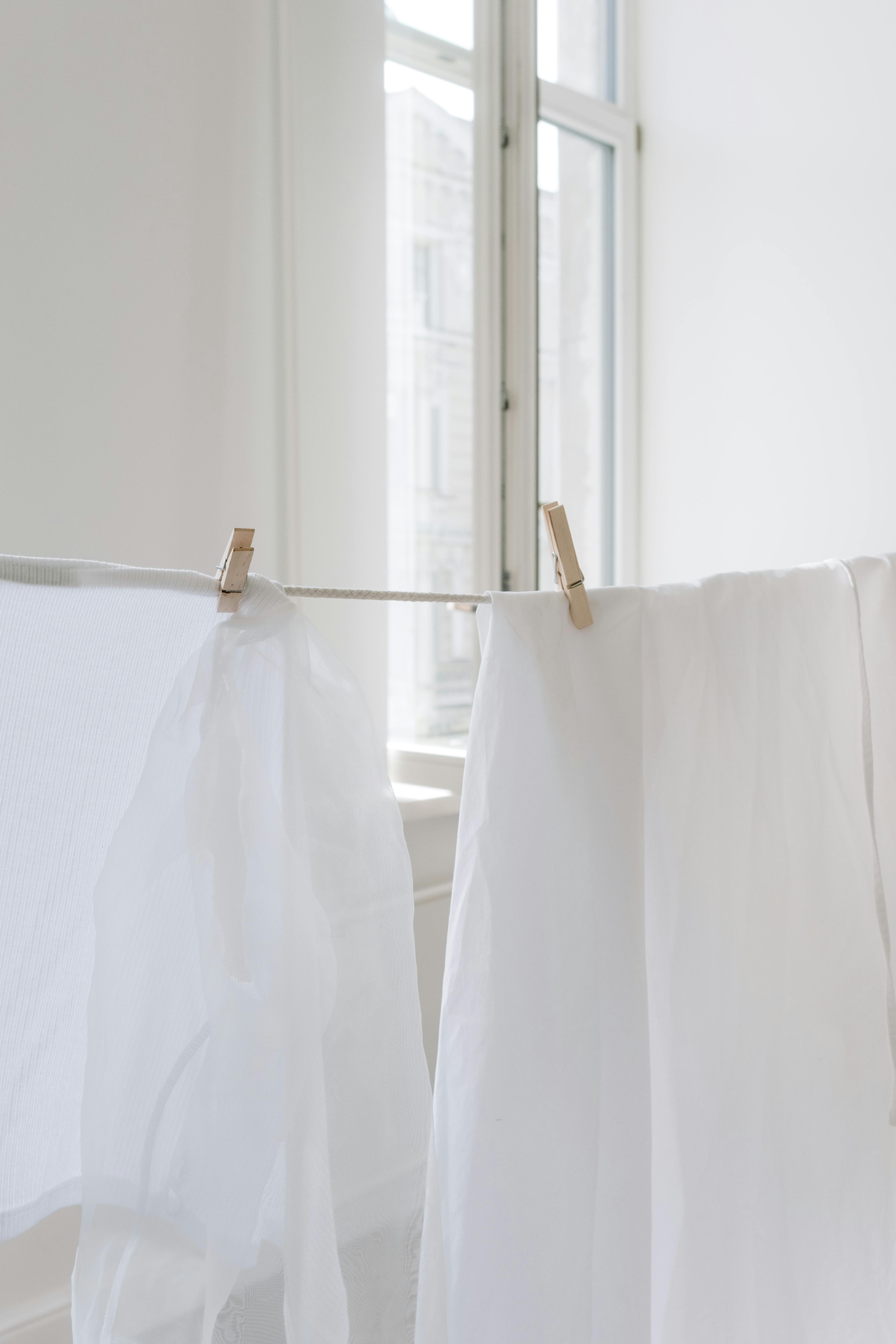
Drying
4.
Natural drying methods
Using the dryer is the fastest way to dry clothes but also the most damaging. Tumble drying your clothes weakens the fabric, causing wear and tear and can cause major shrinkage to a garment, decreasing its wearability. After washing, shake your clothes out and carefully reshape whilst damp, to reduce further wrinkling. Finally, line dry or place them on a hanger to dry out to protect their life cycle.
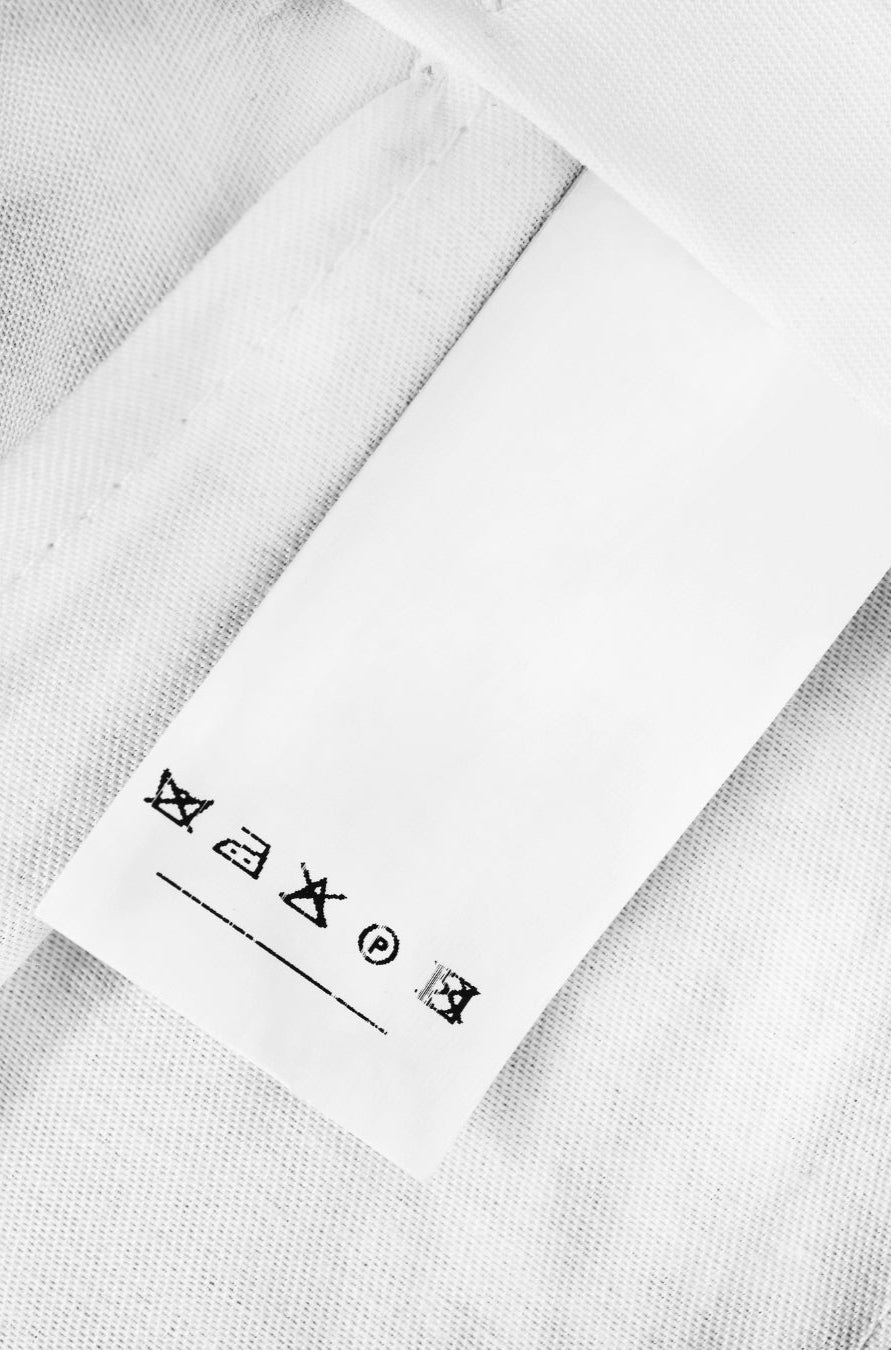
Care Labels
5.
Wash clothes according to Care Label
The best way to care for your garments is by following their individual care label guide. Although this is best practice, do be mindful in the ways in which this could impact the environment and where possible, wash clothes on a more eco-friendly cycle at 30°C and below or on a cold wash. Additionally, maximise your washing machine's capacity to avoid any unnecessary water and energy waste.
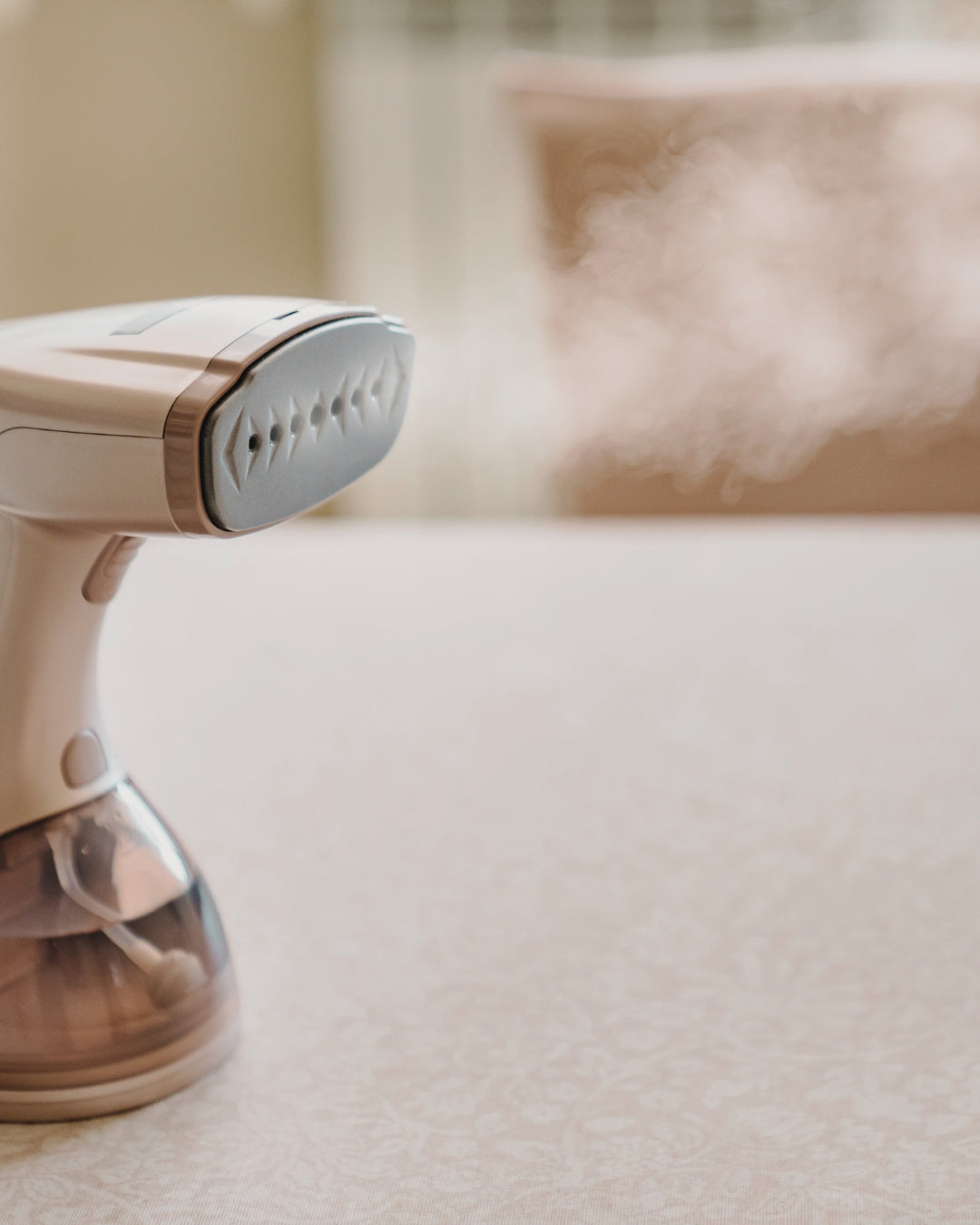
Heat
6.
Using heat
To protect your clothes, always pay attention to its ironing guide found on the care label. This provides the correct heat temperature to use for individual garment fabrics and should be followed to prolong its wear. Some fabrics will require more heat than others due to their fibres but can be achieved by steaming instead of ironing. Using a steamer will equally release wrinkles from fabrics whilst being a more eco-friendly solution to using heat on your clothes.
FABRIC CARE GUIDES
Information and instructions on how to further care for individual fabric needs.





